- Brenda Hebner retires after 38 years at Waterloo
- Canada's first zero-carbon, net-positive energy building is on track to propel Ontario's energy transition
- Using AI to advance health care in Canada
- Open Education Week Series: "Tell Me 'Bout the Good Old Days"
- Announcing KIX 2023
- Staff Conference issues call for volunteers
Editor:
Brandon Sweet
University Communications
bulletin@uwaterloo.ca
Brenda Hebner retires after 38 years at Waterloo
A message from the Office of Research.
After a 38-year career at the University of Waterloo, Brenda Hebner is retiring this spring with her last day on campus set for March 17.
Brenda came to the University of Waterloo as a student in 1984 to study accounting. Her introduction to the Office of Research (OR) came shortly after, with co-op placements during her first and second work terms. During these co-op roles she gained valuable experience working in Research Finance. Then, in November 1985, Brenda was offered a full-time position. Due to the requirements of her undergraduate program in accounting, she was not able to attend full-time and decided to continue as a part-time student.
After she began her full-time position at Waterloo, she continued her studies and soon after married, and eventually had two children. Brenda’s goal was to continue her career development at Waterloo and graduate university before her children graduated high school. She remembers all the times she would sit at the kitchen table with them doing homework, and the “no avoiding homework” policy she enforced and had to abide by. Her persistence paid off and in 2007 she graduated with a bachelor’s degree, before her children finished high school!
Including her two co-op terms, Brenda held nine different positions in the Office of Research over her 38-year career. In the early days, “computers weren’t common” according to Brenda, so much of the work was done by hand. For example, one of her jobs required her to read (and decipher) handwritten reports from faculty members. Some were upwards of 80 pages and very technical.
She spent 14 years employed in Research Finance working her way up to a Senior Manager role. Then, in January 1999 she moved to negotiating research grants and contracts, specifically in the role of Contracts and Industrial Grants Manager. Brenda will be retiring in May from her current role as Senior Manager, Research Partnerships.
Brenda and her husband plan to retire in Honey Harbour where they will split their time between their cottage and travel.
Brenda has had so many wonderful memories at Waterloo. She has seen the enormous growth in OR and the University overall. She has made life-long friendships and enjoyed the many social activities the University offered, like being part of the baseball league and Friday lunches at the Heidelberg. For several years prior to COVID, every Friday around 8 a.m., Brenda made rounds through the office, briefly stopping by colleagues’ desks, to wish them “Happy Friday” and chat about weekend plans. It was her way to connect with colleagues and get to know the new staff in the OR. “I thoroughly enjoyed my Friday chats around the office.” In the end, Brenda will miss the people the most.
She wants to leave this final message to her Waterloo friends, colleagues, and those she has never met: “Don’t hesitate to embrace everything the University has to offer for professional and personal growth – it is a rare opportunity and privilege to work and be part of the University community.”
Canada's first zero-carbon, net-positive energy building is on track to propel Ontario's energy transition
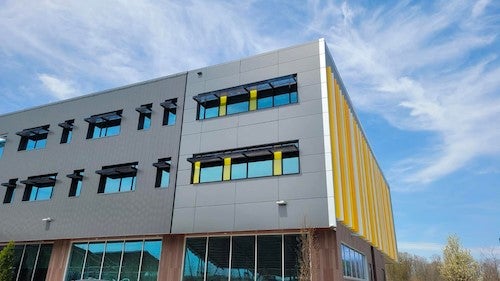
This article was originally published on Waterloo News.
Office buildings are typically not energy efficient, and globally they contribute to nearly a third of greenhouse gas emissions from construction to end of life. A new study out of the University of Waterloo analyzes data-driven improvements in Canada’s first zero-carbon, net-positive energy building showing how they play a vital role in that building generating more energy than it consumes.
In the first case study of its kind in Canada, researchers found that the net-positive building used more energy than originally predicted during the first nine months of operation while the operators were still learning about building systems. In 2019, the building failed to deliver on its promise to make enough solar power for its operations and some for the community. However, through continuous monitoring and implementing improvements, operations staff were able to reduce the building’s energy consumption by approximately 15 percent without compromising the comfort of people working in the space.
“The case study demonstrates that all buildings can experience operational inefficiencies – including environmentally friendly models,” said Monika Mikhail, a graduate student in the School of Environment, Enterprise and Development and lead researcher on this work. “Implementing data-driven improvements to finetune operations can help sustainably designed buildings achieve their promise to create clean energy for society.”
To address the performance gaps, operations staff upgraded selected equipment like pumps to distribute heat efficiently throughout the building. They also trialled new measures, such as adjusting the heating, ventilation, and air conditioning schedules for improvements. Adopting a mindset of continuous improvement paid off as the energy used to perform those tasks decreased. Now the net-positive building is on track to achieve its target in 2022, producing five percent more clean energy than its consumption and adding it to the Ontario grid.
“We have the technology and tools to adapt to climate change, but they alone are not enough,” said Mikhail. “Leveraging the experience and expertise of building operations professionals and data analysis are critical to ensuring sustainability targets are met.”
In the future, the researchers hope that the findings will inspire other building owners to go beyond producing just their energy quota (net-zero energy) and aim to reach net-positive energy.
“The surplus clean energy can offset the embedded carbon from construction and thus achieve zero-carbon performance, an essential step toward achieving our national carbon targets,” said Paul Parker, professor at the School of Environment, Enterprise and Development. “This effort will require strong collaboration between many stakeholder groups, including designers, operators and funding bodies.”
The study, Net-positive office commissioning and performance gap assessment: Empirical insights, appears in the journal Energy & Buildings.
Using AI to advance health care in Canada

How do we bridge machine learning with clinical decision making for better patient outcomes?
You are invited to the virtual health data seminar on Wednesday, March 22, from 3:00 p.m. to 4:30 p.m. Join us to learn about opportunities for engagement and collaboration at the University of Toronto Temerty Centre for Artificial Intelligence Research and Education in Medicine (T-CAIREM), a national network that engages 23 universities and 90 organizations across Canada in advancing AI in medicine.
Dr. Muhammad Mamdani, vice-president of Data Science and Advanced Analytics at Unity Health Toronto and director of T-CAIREM, will present about educational, research, infrastructure and community engagement activities.
Learn more about the seminar and registration
Open Education Week Series: "Tell Me 'Bout the Good Old Days"
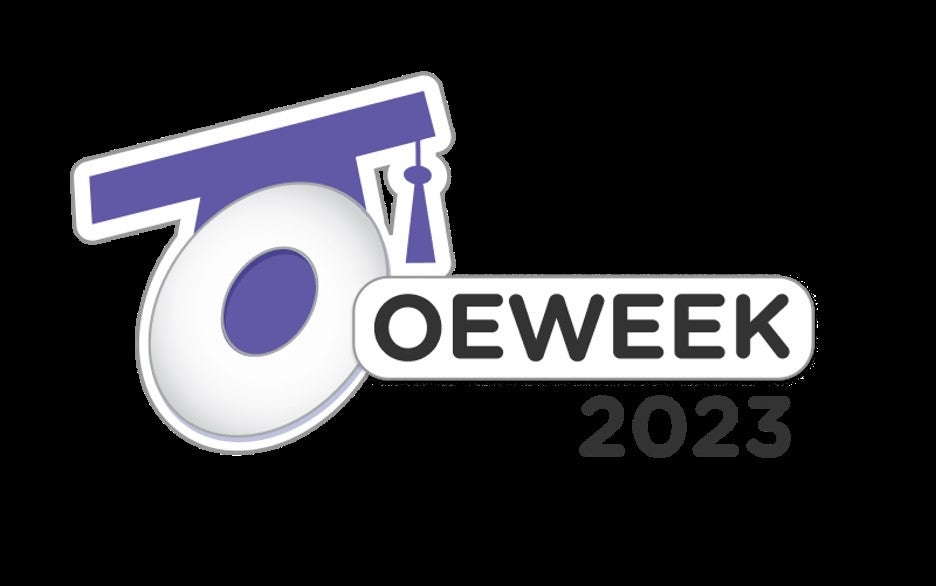
By Dana Francoeur. This article is one of a series celebrating Open Education Week, brought to you by the Open Scholarship Committee.
Despite living in a world with a large, aging population, not all of us have direct personal access to older adults.
This is what Elena Neiterman, Continuing Lecturer, and Catherine Tong, Adjunct Professor, School of Public Health Sciences, realized while teaching a course on the sociology of aging. For some students, a “simple” activity that required students to talk to an older adult was actually quite difficult. “Some students, especially international students or maybe first- or second-generation families, might not have older adults in their lives to talk to,” said Tong.
Life Stories of Older Adults: Insights on Life and Aging fills this gap. The newly released open education resource (OER) received funding in 2022 via the OER Fellows Grant, sponsored by the University of Waterloo Library (it is now the Staebler Insurance OER Fellows Grant).
Eight life stories
Designed to be used as either a stand-alone tool or incorporated into courses and programs, it includes eight unique videos where older Canadians from a wide range of cultural and social backgrounds tell their life stories.
While the project was realized within the context of a sociology course, these recorded stories can be used across a variety of disciplines and levels of study. There are also prompts such as interactive reflection activities after each video as well as a final list of suggested applications for further discussion that showcase the OER’s versatility. For example, a colleague at Toronto Metropolitan University, who teaches a course on urban planning for an aging population, has been eagerly awaiting the launch of Life Stories of Older Adults. “She’s emailed me twice to [ask] when are your digital stories going to be ready”? Tong said.
Neiterman and Tong’s OER was designed for this exact purpose: to be reused and modified for anyone interested in these kinds of stories. Housed on eCampusOntario’s Open Library Publishing Platform, it is licensed under the Creative Commons Attribution-NonCommercial-ShareAlike 4.0 International Licence, which permits copying, reuse, and modification by anyone, anywhere in the world.
Stories can be viewed altogether or one at a time, said Neiterman. Instructors are therefore able to customize and embed these videos as part of their own content, highlighting elements relevant to their individual needs.
Student collaborators
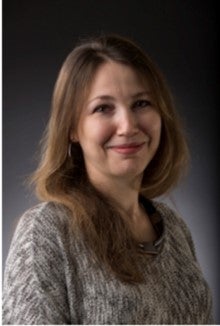
Neiterman and Tong feel that this OER is a success because of the level of student involvement. Neiterman called it a “collaborative experience” where she and Tong acted mainly as facilitators, guiding the project while the students found older adults to interview, collected the data, and added their reflections on the experience.
“The students gave us great insight on how we could use these stories as teaching tools…and how to integrate that into learning because they’re close to that,” Tong said, adding that it “engaged students so much more.”

The students also helped tap into a more diverse community than an instructor might have access to. For example, one interview was done entirely in Italian and the student involved then provided an English transcript.
Neiterman and Tong share the same philosophy that teaching is about engagement with students and listening to their voices. “This whole project is for students,” Neiterman said. And with this unique focus on the students and their direct involvement in the project, Neiterman and Tong are confident that Life Stories of Older Adults is an educational tool many students and educators will find valuable.
Announcing KIX 2023
A message from the Knowledge Integration program.
KIX (n): Knowledge Integration eXhibition; a convergence of disciplines, teaching methods and creative minds in an object-centric exhibition on topics related to the United Nations’ Sustainable Development Goals.
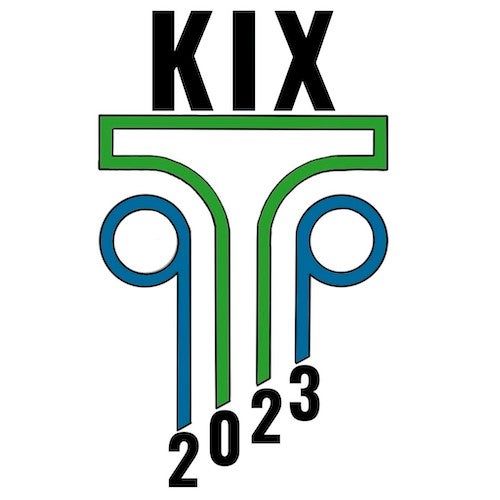
The students of the Copenhagen cohort in the Knowledge Integration program invite you to experience the culmination of our third-year design project: The Museum Course. After spending ten days in Copenhagen last spring, we returned to Waterloo in September ready to implement some of the design features we examined on our trip. Working in teams to produce these exhibits has been a rewarding and unique experience.
In building our exhibits, we have moved beyond the traditional projects and assignments typical of an undergraduate experience. The creation process allowed us to be self-directed and enabled us to incorporate skills from many different disciplines. The result is an exhibition that showcases our knowledge of museums and their design methods, as well as our teamwork and dedication to something that is a little out-of-the-box.
Visit our exhibits and learn about:
- Following the Money: Addiction, advertisements, and algorithms. How is social media using you?
- Activism in Abstract: The power in a paint stroke
- Change Your Mind: Change your mind about changing your mind
- What’s So Funny? Experience wellness through humour
- Keep your Marbles: Maintain your brain
KIX exhibition dates:
- March 13 and 14, 11:00 a.m. to 6:00 p.m.
- March 15, 11:00 a.m. to 5:00 p.m.
- March 16 and 17, 11:00 a.m. to 6:00 p.m.
- March 18, 10:00 a.m. to 4:00 p.m.
Learn more about KIX and the Knowledge Integration program.
Staff Conference issues call for volunteers
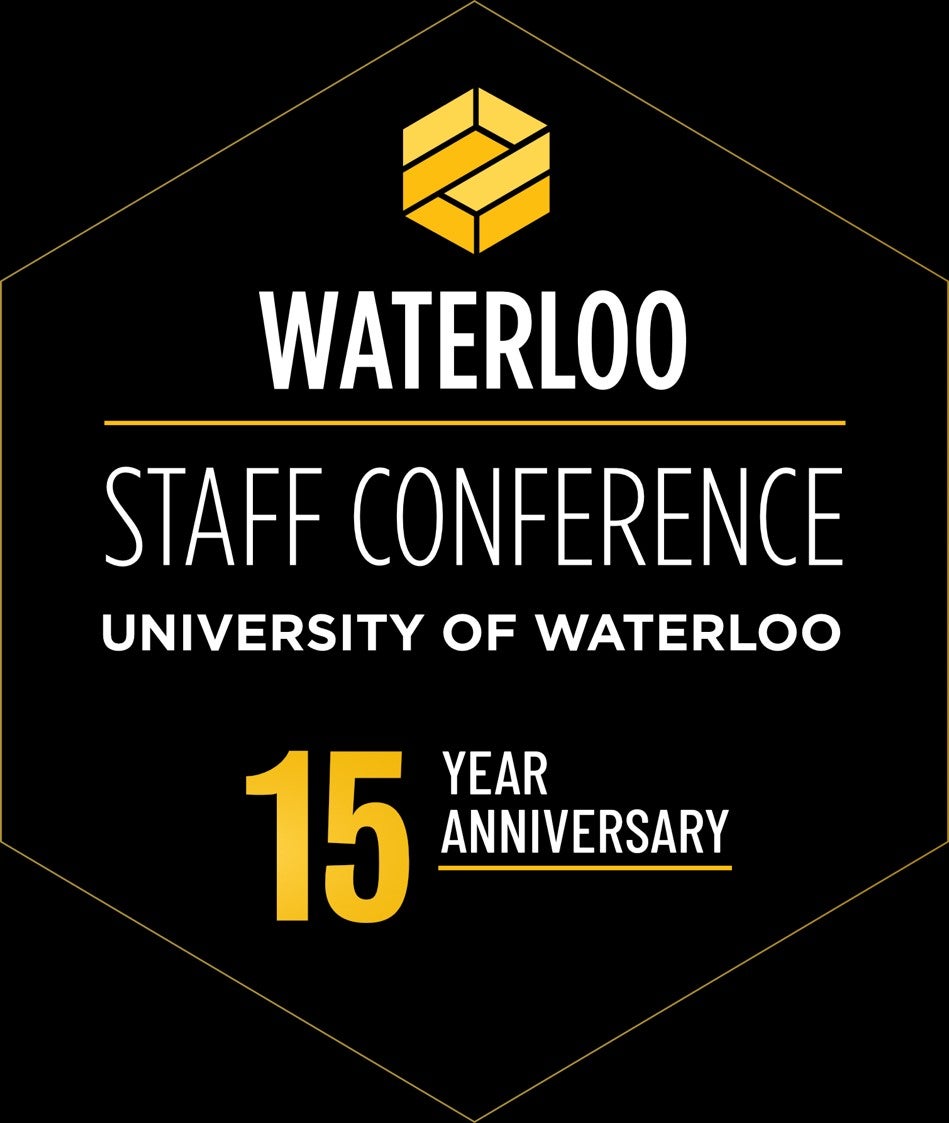
A message from Organizational & Human Development (OHD).
The Waterloo Staff Conference is taking place on April 11 and 12, 2023, and we can’t do it without you. Employees who volunteer at the annual staff conference are a critical part of the annual conference. If you would like to be involved in helping to make the event a success, we’d love to hear from you.
How to volunteer
If you would like to help, please fill out our Volunteer Sign-up Form by March 17, 2023. A team member from OHD will contact you after this date to provide more details about what your role will include.